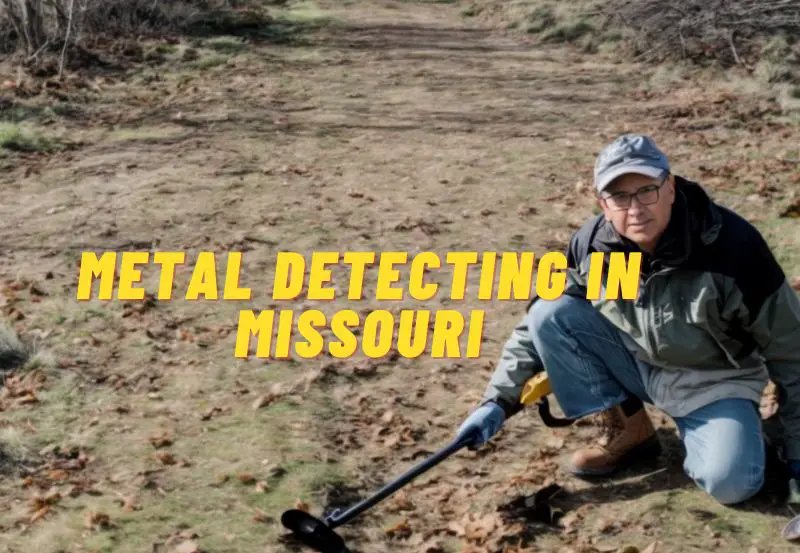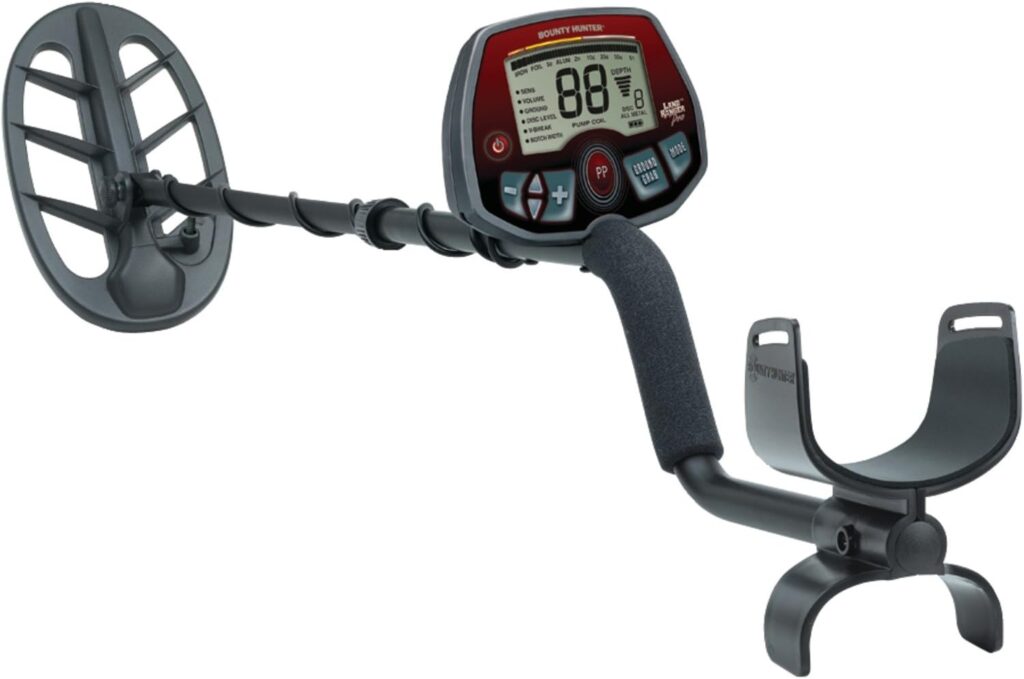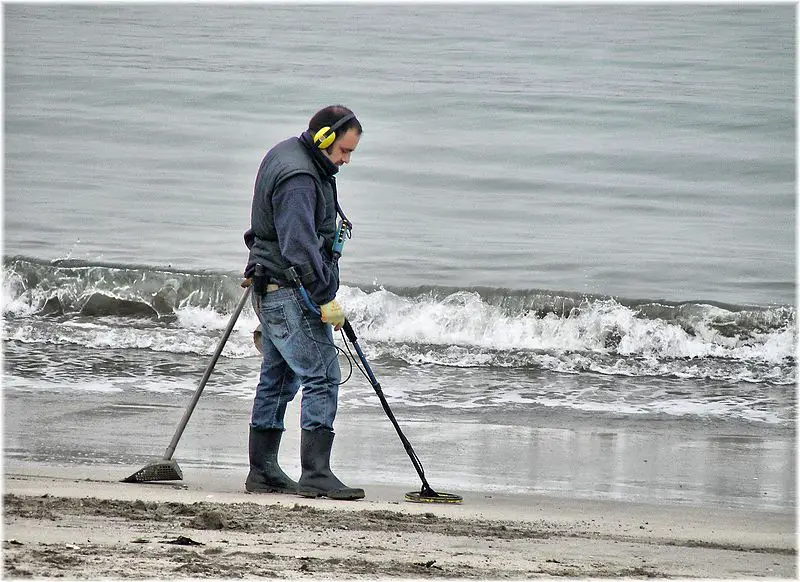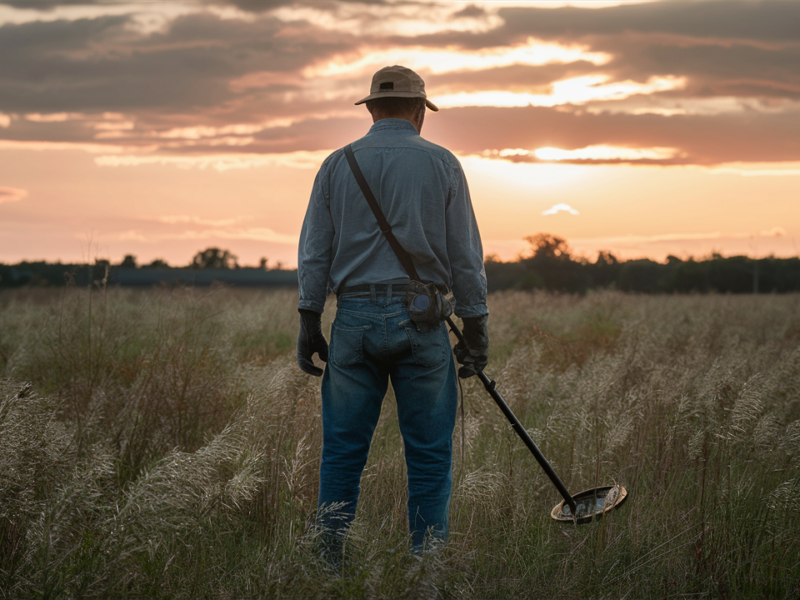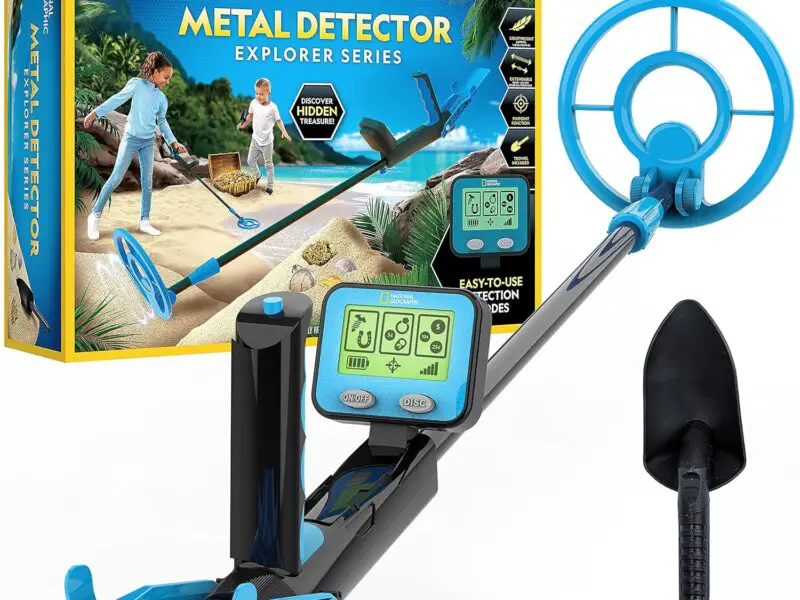Embark on a thrilling treasure hunt metal detecting in Missouri with this ultimate guide. Discover hidden treasures across Missouri’s vast fields and historic sites, ready to be unearthed. This article provides essential tools, techniques, and insights for finding artifacts and precious items. Ideal for history enthusiasts, adventurers, or the curious, metal detecting in Missouri offers a rewarding experience. Learn about different metal detectors, legal considerations, site research, popular locations, necessary equipment, effective strategies, item preservation, and more. Whether you’re a beginner or seasoned detectorist, get ready for an unforgettable adventure in Missouri’s treasure-filled landscapes.
Types of Metal Detectors
VLF Metal Detectors
VLF, or Very Low Frequency, metal detectors are the most common type used by hobbyists. They work by sending out a continuous sine wave and detecting any changes in the frequency caused by a metal object. VLF detectors are highly sensitive to small objects and are excellent for finding coins, jewelry, and relics. They are also versatile and can be used in various terrains and conditions.
PI Metal Detectors
PI, or Pulse Induction, metal detectors are known for their exceptional depth capabilities. They use a single coil to transmit and receive pulses of electricity, allowing them to detect deeply buried or large metal objects. PI detectors are ideal for beach hunting and searching in mineralized soil. However, they are less sensitive to small targets and can produce more false signals.
Beat Frequency Oscillation (BFO) Metal Detectors
BFO metal detectors are the simplest and most affordable option for beginners. They work by generating two oscillating frequencies that intersect when near a metal object, producing a “beat” frequency. BFO detectors are best for locating larger and shallow targets but can struggle in highly mineralized soil. While they may not provide the same level of precision as VLF or PI detectors, BFO detectors are a great entry point into the hobby.
Laws and Regulations
Understanding the Laws Metal Detecting in Missouri
Before you start metal detecting in Missouri, it’s crucial to understand the laws and regulations regarding the hobby. While the state generally permits metal detecting in public areas, such as parks and beaches, certain restrictions may apply. For example, it is illegal to detect on archaeological or historical sites without permission. Familiarize yourself with the specific regulations in Missouri to ensure you stay within the bounds of the law while enjoying your hobby.
Obtaining Proper Permits and Permissions
To ensure a trouble-free metal detecting experience, it’s essential to obtain the necessary permits and permissions. Some areas, such as state parks or private properties, may require you to obtain a permit before detecting. Additionally, if you plan to search on private land, always seek the landowner’s consent. Being respectful and responsible when obtaining permits and permissions will help preserve the hobby for future enthusiasts.

Researching Potential Sites
Online Research Tools and Resources
The internet is a goldmine, pun intended, for finding information about potential metal detecting sites. Utilize online tools and resources such as historical maps, databases, and forums to identify sites with historical significance or high chances of yielding valuable finds. Websites like TreasureNet and The Metal Detecting Forum can connect you with experienced detectorists who can offer invaluable advice and share their knowledge. Here is a full list of metal detecting forums.
Local Libraries and Historical Societies
Don’t underestimate the wealth of information available at local libraries and historical societies. Public records, old newspapers, and historical books can provide insights into less-known sites that may hold hidden treasures. Librarians and historical society members can also guide you in your research and provide contact information for local experts who might have more information about specific areas of interest.
Talking to Local Residents and Experts
Engaging with local residents and experts is another effective way to gather information about potential metal detecting sites. They may have stories or knowledge about abandoned homesteads, notable events, or local legends that can lead you to interesting locations. Attend local historical events, join community groups, or strike up conversations with experienced detectorists to tap into their expertise and uncover hidden gems.
Popular Metal Detecting Locations
State and National Parks
State and national parks in Missouri are not only beautiful natural wonders but also treasure troves of potential metal detecting sites. While regulations may vary from park to park, many allow metal detecting in designated areas. Always check for any restrictions or permits required before detecting in these locations, and be mindful of preserving the park’s natural and historical integrity.
Historical Battlefields
Missouri’s rich Civil War history makes its battlefields prime locations for metal detecting enthusiasts. From Wilson’s Creek National Battlefield to Lexington Battlefield, these sites have witnessed significant events and can yield relics, bullets, and other artifacts. Remember to obtain permission from the relevant authorities before detecting on these hallowed grounds.
Ghost Towns and Abandoned Sites
Exploring ghost towns and abandoned sites can transport you back in time. By researching historical maps and consulting local experts, you can identify these forgotten places and uncover lost treasures. Understand that some ghost towns may be on private property, so always obtain permission before detecting. Remember to be respectful and leave the sites as you found them.
Equipment and Tools
Metal Detector Accessories
While a metal detector is the primary tool for your detecting adventures, certain accessories can enhance your experience. These include headphones to hear faint signals, pinpointers to locate buried objects precisely, and coil covers to protect your detector’s search coil. Investing in quality accessories can improve your accuracy and efficiency in the field.
Digging Tools
Detecting is only half the battle; recovering your finds requires digging tools. A sturdy digging tool like a trowel or a digging knife is essential for safely and efficiently retrieving buried objects. Ensure you use proper techniques and respect the environment by filling any holes you dig.
Protective Gear
Metal detecting often takes you outdoors, exposed to various elements. Stay comfortable and protected by wearing appropriate gear such as comfortable clothing, sturdy footwear, hats to shield against the sun, and sunscreen to prevent sunburn. If you plan to search in water or muddy areas, consider investing in waterproof boots and gloves for added protection.
Techniques and Strategies
Sweeping and Grid Patterns
When detecting an area, it’s essential to employ efficient sweeping techniques. Maintain a steady and deliberate pace, overlapping each sweep to ensure you cover the entire surface. Advanced detectorists often use grid patterns, systematically searching an area in a back-and-forth manner to minimize any chances of missing targets.
Target Identification Methods
Developing target identification skills is key to maximizing your success rate. While metal detectors offer discrimination capabilities, they are not foolproof. Learning to distinguish different audio and visual signals will help you determine whether a target is worth digging or simply a piece of trash. Familiarize yourself with common target sounds and visual indicators to improve your accuracy.
Digging and Recovery Techniques
Once you’ve located a target, proper digging and recovery techniques are crucial to avoid damaging the artifacts and leave the area undisturbed. Use your digging tool to carefully loosen the soil around the target and remove it gently. Take extra precautions in sensitive locations like historical sites, ensuring you leave no trace and restore the area to its original condition after recovering an item.
Cleaning and Preserving Found Items
Safety Precautions
Before you start cleaning your found items, it’s essential to take safety precautions. Some artifacts, especially those made of metal, may be sharp or have fragile parts. Use gloves and protective eyewear when handling potentially hazardous objects. Additionally, never use harsh chemicals that may damage or corrode your finds. A gentle touch and the right cleaning methods will help preserve the integrity of your discoveries.
Cleaning Methods for Different Types of Artifacts
Different artifacts require different cleaning methods to ensure proper preservation. For metal objects, such as coins or buckles, mild soap and water, along with a soft brush, can often do the trick. Delicate items like pottery shards or glass should be gently cleaned with water and a soft cloth to avoid further damage. Research specific cleaning techniques for different types of artifacts to ensure you handle them with care.
Preservation and Display Options
Once your finds are clean, you may want to preserve and display them as a reminder of your metal detecting adventures. Storage options such as acid-free coin sleeves, display cases, or shadow boxes can keep your artifacts safe from deterioration. Take pride in your collections and proudly showcase them to spark conversations and storytelling.
Joining Metal Detecting Clubs and Associations
Benefits of Joining a Club
Joining a metal detecting club or association offers numerous benefits for both beginners and experienced detectorists. Clubs provide a sense of community, networking opportunities, and access to group hunts and outings. Experienced members are often willing to share tips, tricks, and valuable knowledge, helping newcomers learn and grow in the hobby. Additionally, clubs may have exclusive access to private properties for detecting, further expanding your hunting grounds.
Finding Local Metal Detecting Clubs
Finding metal detecting clubs in your local area is as easy as conducting an online search or asking other enthusiasts. Websites like The Federation of Metal Detector and Archaeological Clubs (FMDAC) and The National Council for Metal Detecting (NCMD) can help you find clubs and associations near you. Reach out to these clubs, attend meetings, and participate in their activities to tap into their collective expertise.
Metal Detecting Events and Competitions
Upcoming Metal Detecting Events in Missouri
Metal detecting events and competitions are fantastic opportunities to meet fellow detectorists, exchange knowledge, and showcase your detecting skills. In Missouri, various events are held throughout the year, including organized group hunts, treasure hunts, and relic competitions. Keep an eye on event calendars, online forums, and social media groups to stay informed about upcoming events in your area.
Different Categories and Competitions
Metal detecting competitions often feature different categories to cater to detectorists of all skill levels. From coin shooting contests to relic hunting challenges, these competitions test your abilities and provide a platform for friendly rivalry. Participating in competitions not only sharpens your skills but also introduces you to other enthusiasts who share your passion for the hobby.
Tips for Beginners
Start with Easy Targets
As a beginner, it’s best to start with easy targets to build your confidence and understanding of your metal detector. Seek out areas where people gather, such as beaches, parks, or campgrounds, as they are more likely to yield coins, jewelry, and other small treasures. While finding a rare artifact is exciting, focusing on easy targets in the beginning will help you hone your skills and familiarize yourself with your detector’s capabilities.
Practice with Various Settings and Techniques
Metal detecting is a skill that requires practice and experimentation. Take the time to familiarize yourself with the different settings and features of your metal detector. Practice in different terrains and conditions to understand how they affect your detector’s performance. Additionally, try out various sweeping techniques and target identification methods to find what works best for you. The more you practice, the better you’ll become at uncovering hidden treasures.
Join Social Media Groups for Advice and Support
Social media platforms like Facebook and Reddit are treasure troves of knowledge and support for metal detecting enthusiasts. Joining dedicated groups allows you to interact with experienced detectorists, ask questions, seek advice, and share your finds. These communities foster a sense of camaraderie and provide a platform for learning and growing in the hobby.
With this ultimate guide to metal detecting in Missouri, you have all the tools and knowledge to embark on your own treasure hunting adventure. Remember to respect the land, observe the laws and regulations, and preserve the historical and natural integrity of the sites you detect. So grab your metal detector, prepare your equipment, and get ready to uncover the hidden treasures waiting to be discovered in Missouri. Happy hunting!
See also:
Pinpointer Metal Detector Pinpoint Precision: The Ultimate Guide
Best Metal Detecting Shovels of 2024: In-Depth Reviews of Top 3 Picks
Top 3 Metal Detector Sand Scoops Reviewed: Find Your Perfect Digging Companion
Top 5 Gold Prospecting Metal Detectors of 2024: The Ultimate Review and Comparison Guide
